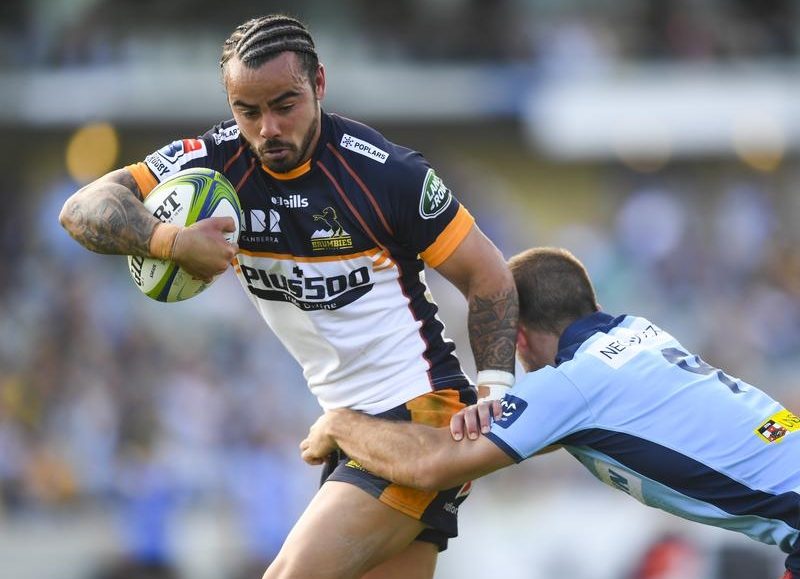
RUPA president Damien Fitzpatrick has called on SANZAAR to think outside the square to save Super Rugby – and says the competition as we know it is likely a thing of the past.
“I can tell you one thing: if the airports are not going to open, it’s going to be difficult to run that comp,” Fitzpatrick said matter-of-factly about Super Rugby’s future.
With Australia’s 192 professional players having finally settled on an average 60 per cent pay cut until September, following almost a month of discussions with Rugby Australia, the focus has shifted to the future structure of Super Rugby.
Fitzpatrick says the sobering reality of empty stands in rugby-mad Pretoria is proof that the current format has lost its appeal and that the entire tournament needs an overhaul.
“You know there’s a problem with your product if you go to South Africa on a Saturday afternoon at Loftus and they can’t seem to put bums on seats,” he said.
“SANZAAR is probably having a really strong look at how the competition can engage fans.”
Even with Japan’s Sunwolves being extinct from next year, Fitzpatrick doubts a 14-team competition involving four from Australia, five from New Zealand, four from South Africa and Argentina’s Jaguares is sustainable.
“I think the situation has shown that right now anything is possible. I don’t exactly know what is able to be changed and what’s not able to be changed,” the NSW Waratahs hooker said when asked if he believed the 2021 format remained set in stone.
“Everything would be on the table, not just from Australia but I’m sure all the SANZAAR partners are looking at ways to get the best result and best product out there for the fans.”
With RA boss Raelene Castle flagging a July-August resumption, when borders could well be still closed, a domestic competition seems the most likely way forward this year.
While the hefty pay cuts were “tough to stomach”, Fitzpatrick said when RA finally opened up their books to RUPA the players quickly realised they needed to take a financial sacrifice to save the game in Australia.
“The fact is we’re in a business where right now we’re not on the field and we know the major revenue driver for professional sport is broadcast and when you’re not fulfilling that contract, you know that that revenue is going to come to a pretty screeching halt,” Fitzpatrick said.
“We would have loved to have known that the company you work for has huge amounts of cash reserves – but that wasn’t the case and we knew that.
“The reason we were sitting at the table was because everyone was fully aware that there needed to be some sort of restructure that incorporated the costs and alleviation of the game to enable us a fighting chance to stay alive.”




